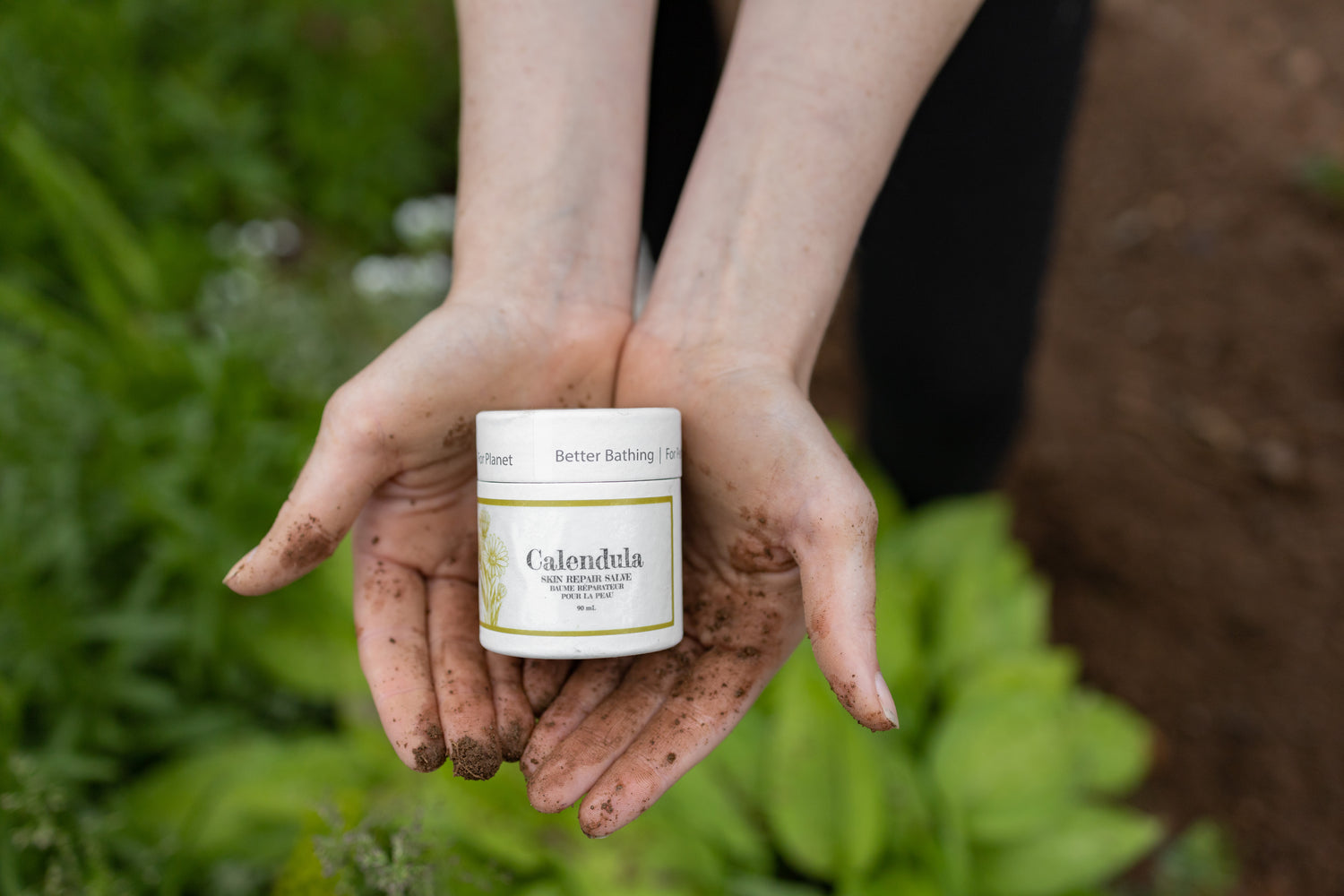This is a guest blog from Tiffany Lei of Garden Guidepost!
"Tiffany is the founder at Garden Guidepost. She is passionate about gardening and hopes to inspire more people to adapt to the gardening lifestyle and start composting."
How To Compost Efficiently?
Composting conserves the environment, revitalizes depleted garden soil, and stimulates the growth of healthy plants. There are countless ways to transform the kitchen and garden wastes into nutrient-rich compost.
However, composting sometimes takes a long time and can be frustrating if you don't do it in the right ways.
Keep reading to find out how to compost efficiently at home.
Choose the Right Compost Materials
The types of compost materials you choose influence the decomposition period and efficiency. So, select the materials based on the following points:
1. Have the Right Brown and Green Ratio
The brown and green materials are crucial for a successful and efficient composting process.
The brown refers to carbon-rich, long dried woodier materials. Examples are cornstalk, hay, shredded cardboard, and twigs.
The green refers to the recently dried materials that are either still green or have traces of life. Also, they are rich in nitrogen. Examples include vegetables, grass clippings, and fruit scraps.
The right blend of brown and green materials means sufficient heat in the pile, faster decomposition rate and odor free. Further, bacteria and fungi find the setting ideal.
If your compost pile doesn’t heat up, try adding more green materials. But if it starts to stink, consider adding more browns.
Many professionals propose the browns to the green ratio of either 4 or 3 to 1. Feel free to tweak the ratio as necessary, depending on your compost materials.
2. Use Plastic-Free Products
Composting is an ideal way to recycle garden and kitchen waste into the soil. But, not all materials are biodegradable. For example, plastics do not decompose and so do not fit a compost pile.
And when you discard the plastics, you ruin the environment. Using plastic-free products is a positive step towards conserving the environment.
Some plastic-free products, like Bubbles & Balms daily-care products for dry & sensitive skin, are designed with compostable packaging, which can be composted within 2-3 months when placed in a compost bin. You can take a bold step towards conserving the environment by using plastic free packaging.
Select an Efficient Composting Method
Besides materials, choosing the right method is also important to shorten composting time. If you compost at home, there are three methods you can select to have an efficient composting process :
1. Compost Tumbler
A compost tumbler is a bin that rotates and mixes its contents with minimal energy input. Its airtight lid, compact size and ability to keep vermin away makes a compost tumbler proficient. Compost tumbler can turn your waste to ready compost in as little as 3 weeks.
Aerating the decaying materials is also easier with a compost tumbler than when you use a pitchfork and hence its efficiency. A simple spin mixes and aerates the decaying matter.
In effect it speeds up the decomposition process. Besides, a multi-compartment compost tumbler supports composting throughout the year. That means you won’t lack rich compost manure at any time.
However, choose a sturdy compost tumbler that’s of the right size as per your garden and easy to rotate. Placing the composter away from direct sunlight and rain, prolongs its lifespan.
Also, adding compost starter to the fresh materials speeds up the decomposition rate.
Once a day, add the chopped materials into the tumbler and spin the bin once or twice. Don’t fill it to the brim. Leave a space of about 10cm so that the materials can mix easily. Replace the lid and let the composting process begin. You only need to turn it about twice a week.
2. Bokashi Composting
Technically speaking, the bokashi method is not “composting” but a fermentation process. It employs effective microorganisms to ferment kitchen wastes into nutrient-rich products for plants.
It produces liquid fertilizer and ready pre-compost in just 2 to 4 weeks, faster than most composting methods. Besides the time factor, Bokashi composting requires footprint space and minimal maintenance. The more reason for its efficiency.
Unlike the usual compost pile, bokashi accepts dairy products and meat. Further, it permits you to compost all year round. And, it produces minimal to no smell.
For the start, sprinkle bokashi bran on the bottom of the bokashi bin. For every 2 inches of compressed food scraps that you pile, add about 2 tablespoons of bokashi bran on top.
When the bin is full, press down with a plate, and replace the air-tight lid. Leave the bin undisturbed for two weeks. In the meantime, tap the bokashi tea every day , you can dilute it in a ratio of 100: 1 for your plants as a liquid fertilizer.
At the end of two weeks, you’ll have a pickled mixture which we call “pre-compost” in your bokashi bin. Bury them in your garden and wait for two more weeks before planting.

3. Electric Composter
An electric composter is an indoor composting machine. You feed in the food scraps and it subjects them to three steps: drying, grinding, and cooling. And within 4 to 48 hours, it can produce ready-to-use fertilizer as the end product.
It's its fast action, indoor compatibility and all year composting that makes it count among the most efficient composting methods. An electric composter uses an internal temperature of 160 degrees to dry the materials and reduce their volume.
And if you fear handling decaying matter or worms, it’s worth trying an electric composter, a truly messy and odor-free composting method.
Final Words
Efficient composting is not difficult. As long as you choose the right materials with the right method, you can turn your wastes into fertilizer in a relatively short time. Making compost a way of life is also satisfying.
Just give compost a try and happy gardening!



